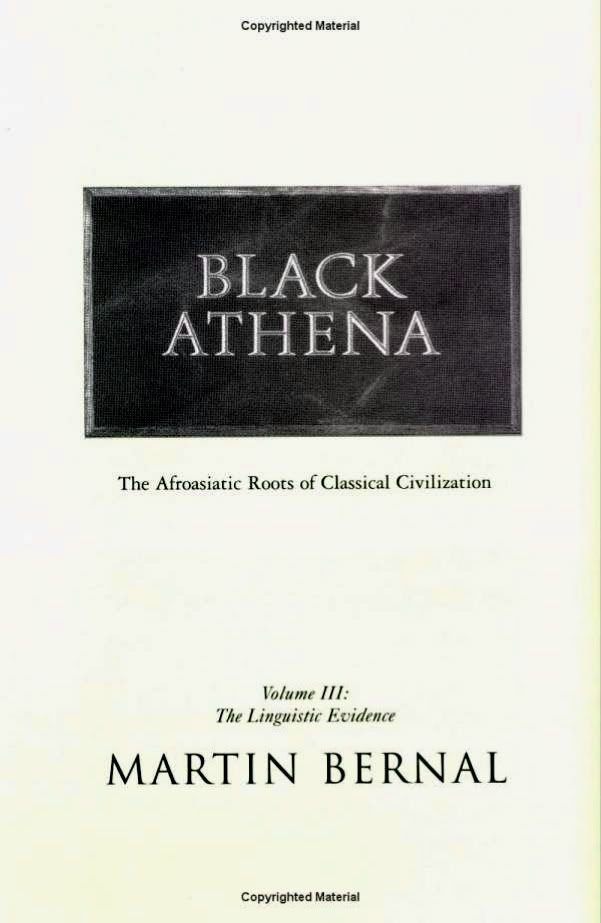during the first half of Greek empire everything came from Egypt and Persia: food, music, technology, philosphy, mathematics, astronomy, religion, medicine, fashion, etc, etc, etc, etc. and it was not until the second part of the empire that the Greeks started coming up with their own ideas - and even then, very much influenced and inspired by Egyptian, Semitic, South Asian (Indian), Middle Eastern (Iranian), and East Asian (Chinese) thought and practice.
the myth that Greece developed more or less by itself, as the beginning of "progressive" and "modern" "western" civilization, was largely a product of 19th century racist revisions of history. German and English scholars began erasing Egypt and Semitic cultures out of history; and in America powerful industrialists apply sweeping education reforms across America, firing professors that did not tell their version of the story, and installing yes-men that propagated the idea that "the West" was something different, and of different origions, from "the East".
the propagation of this fictional dichotomy between the "occident" and "orient" has always been politically motivated, provides a foundation for racism, distrust, and divide which furthers the aims of the ruling elite -- and is still instrumental today (the structural basis for "the war on terror", which also may be seen as the latest expression of these false ideas)
much of this train of excavations can be found in this book, derided by the ignorant and the brain-washed (just look at the ratings and comments on amazon):

from Amazon:
What is classical about Classical Civilization? In one of the most audacious works of scholarship ever written, Martin Bernal challenges the whole basis of our thinking about this question. Classical civilization, he argues, has deep roots in Afroasiatic cultures. But these Afroasiatic influences have been systematically ignored, denied, or supressed since the eighteenth century--chiefly for racist reasons. The popular view is that Greek civilization was the result of the conquest of a sophisticated but weak native population by vigorous Indo-European speakers--or Aryans--from the North. But the Classical Greeks, Bernal argues, knew nothing of this "Aryan model." They did not see their political institutions, science, philosophy, or religion as original, but rather as derived from the East in general, and Egypt in particular. Black Athena is a three-volume work. Volume 1 concentrates on the crucial period between 1785 and 1850, which saw the Romantic and racist reaction to the Enlightment and the French Revolution, and the consolidation of Northern expansion into other continents. In an unprecedented tour de force, Bernal makes meaningful links between a wide range of areas and disciplines--drama poetry, myth, theological controversy, esoteric religion, philosophy, biography, language, historical narrative, and the emergence of "modern scholarship."
Could Greek philosophy be rooted in Egyptian thought? Is it possible that the Pythagorean theory was conceived on the shores of the Nile and the Euphrates rather than in ancient Greece? Could it be that much of Western civilization was formed on the "Dark Continent"? For almost two centuries, Western scholars have given little credence to the possibility of such scenarios.
In Black Athena, an audacious three-volume series that strikes at the heart of today's most heated culture wars, Martin Bernal challenges Eurocentric attitudes by calling into question two of the longest-established explanations for the origins of classical civilization. To use his terms, the Aryan Model, which is current today, claims that Greek culture arose as the result of the conquest from the north by Indo-European speakers, or "Aryans," of the native "pre-Hellenes." The Ancient Model, which was maintained in Classical Greece, held that the native population of Greece had initially been civilized by Egyptian and Phoenician colonists and that additional Near Eastern culture had been introduced to Greece by Greeks studying in Egypt and Southwest Asia. Moving beyond these prevailing models, Bernal proposes a Revised Ancient Model, which suggests that classical civilization in fact had deep roots in Afroasiatic cultures.
This long-awaited third and final volume of the series is concerned with the linguistic evidence that contradicts the Aryan Model of ancient Greece. Bernal shows how nearly 40 percent of the Greek vocabulary has been plausibly derived from two Afroasiatic languages--Ancient Egyptian and West Semitic. He also reveals how these derivations are not limited to matters of trade, but extended to the sophisticated language of politics, religion, and philosophy. This evidence, according to Bernal, greatly strengthens the hypothesis that in Greece an Indo-European-speaking population was culturally dominated by Ancient Egyptian and West Semitic speakers. Provocative, passionate, and colossal in scope, this volume caps a thoughtful rewriting of history that has been stirring academic and political controversy since the publication of the first volume.
About the Author
Martin Bernal, formerly a fellow of King's College, Cambridge, and professor of Government and Near Eastern Studies at Cornell University, is now retired.
